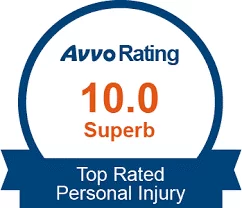Every day, Georgia’s roads witness a silent crisis that claims an average of five lives. Though the most recent available data showed a slight decrease in road fatalities from 2,020 in 2021 to 1,982 in 2022, the challenges of speed, aggressive driving, and notably, distracted driving remain pivotal concerns. These issues stand at the forefront of the state’s ongoing efforts to enhance traffic safety.
Distracted driving, identified as a key factor in 54% of motor vehicle crashes, along with alarming statistics regarding seat belt usage and pedestrian fatalities, underscores the critical need for comprehensive strategies to safeguard road users. This blog delves into the heart of the distracted driving dilemma, specifically addressing “what are the three main categories of distracted driving?” By exploring these categories, we aim to offer insights and practical tips to help you avoid becoming a statistic. Additionally, we’ll offer some tips on avoiding distracted driving and touch on the legal consequences to further underscore its seriousness.
If you or a loved one has been affected by a distracted driving incident, facing medical bills, lost wages, or the emotional aftermath, Greathouse Trial Law is here to provide support and legal guidance. With a focus on personalized legal representation, we are committed to helping you navigate these challenging times. Don’t hesitate to reach out at (678) 310-2827 for a free consultation with an experienced Atlanta accident lawyer from our team. We’re here to advocate for your rights and facilitate your journey towards recovery.
What Is Distracted Driving?
Although anything that takes your focus off driving is considered a distraction, researchers point to three main types of distractions:
- Manual distractions
- Visual distractions
- Cognitive distractions
Next, let’s take a closer look at what this means.
Visual Distractions
A quick glance at your phone’s notification might seem harmless, but in Georgia, it can result in a hefty citation and, far worse, a devastating collision. Other common examples include:
- Reading billboards or signs
- Looking at GPS/navigation systems
- Observing accidents or other events outside the vehicle
- Checking on passengers or pets in the vehicle
- Engaging with multimedia devices (e.g., changing the radio station or selecting music)
Remember: Each second your eyes are away from the road increases your risk of an accident.
Manual Distractions
Juggling a burger and navigating rush hour traffic may seem like a feat of dexterity, but it’s a recipe for disaster. Taking your hands off the wheel, whether dialing a number or reaching for a rogue fry, severs the vital connection between you and your vehicle. Here are some other common examples of manual distractions:
- Adjusting Controls: Modifying your car’s settings, like the radio or air conditioning, often requires the use of your hands
- Handling Objects: Reaching for items in your car, such as sunglasses or your phone, diverts your hands from their driving position.
- Personal Grooming: Activities such as applying makeup or shaving involve using your hands and are a notable source of distraction
When your hands are off the wheel, even momentarily, your ability to react swiftly to road conditions or hazards is compromised. It’s crucial for your safety to minimize these distractions while driving.
Cognitive Distractions
While spilled coffee and fumbled phones grab the spotlight, cognitive distractions deserve equal attention. These are mental roadblocks that divert your focus, even if your eyes are on the road and your hands on the wheel. They might seem harmless, but the consequences can be just as devastating as a dropped call or a wandering hand.
Imagine driving home after a stressful day at work, replaying an intense conversation in your head. Suddenly, a car slams on brakes in front of you. Your mind, still entangled in the mental replay, reacts a fraction of a second too late. This seemingly trivial scenario – a mental detour – could land you in a critical accident.
Similarly, feeling overwhelmed by anger, grief, or excitement can cloud your judgment, while even hands-free conversations can hinder your ability to navigate tight spaces or anticipate hazards. It’s a multitasking myth: our brains aren’t wired for it.
Recognizing cognitive distractions is crucial for your safety as these distractions can significantly impair your ability to anticipate and react to traffic conditions and hazards.
Tips for Avoiding Distracted Driving
Navigating the roads safely demands our full attention. With distracted driving on the rise, it’s crucial to adopt practices that ensure we remain focused behind the wheel. Here are actionable tips to help you steer clear of distractions:
- Use ‘Do Not Disturb’ Modes: Modern smartphones come with features designed to minimize distractions. Activate your phone’s ‘Do Not Disturb While Driving’ mode to silence notifications while on the road.
- Prepare Before You Drive: Set your GPS, adjust mirrors, seats, and climate controls, and select your playlist before you embark on your journey. Preparation reduces the need to make adjustments while driving.
- Secure Items: Ensure all items are securely placed where they won’t fall and distract you during the drive. If something needs your attention, pull over safely before addressing it.
- Limit Passenger Distractions: Conversations with passengers can be engaging but also distracting. Set expectations with your passengers about keeping distractions to a minimum, especially in challenging driving conditions.
- Avoid Eating and Drinking: While it might save time, eating or drinking while driving diverts your attention and hands away from driving tasks. Plan meals around your trips or take breaks for eating.
- Delegate Controls: If you’re driving with passengers, delegate tasks such as adjusting the radio, air conditioning, or navigation to them, allowing you to focus on the road.
- Educate Young Drivers: If you have teenagers or new drivers in your family, educate them about the dangers of distracted driving and encourage them to develop safe driving habits from the start.
- Commit to Focused Driving: Make a personal commitment to keep your attention on driving. Remind yourself of the risks before starting the car, and take responsibility for your safety and that of others on the road.
By implementing these tips, you contribute to safer roadways for everyone. Remember, distracted driving is preventable, and it starts with you.
Legal Consequences of Distracted Driving in Georgia
While the emotional and physical consequences of a distracted driving accident are devastating, there are also significant legal repercussions for drivers who choose to endanger themselves and others by taking their eyes off the road. Here in Georgia, the law takes distracted driving seriously, and violating regulations can result in steep fines, points on your license, and even criminal charges in certain cases.
The Hands-Free Law and Beyond
Georgia’s “Hands-Free Law” prohibits drivers from holding or manipulating their phones while behind the wheel, including talking, texting, and browsing. Even holding your phone while stopped at a red light or stop sign violates the law. Penalties for a first offense start at $50 and one point on your license, increasing to $100 and two points for a second offense within two years. Subsequent violations carry even higher fines and points, and prolonged texting infractions can even lead to a suspended license.
But distracted driving extends beyond phone use. Reckless or aggressive driving caused by distractions can result in more serious consequences, including misdemeanor or felony charges depending on the severity of the accident and injuries sustained.
Remember, while legal consequences play a role in deterring distracted driving, the ultimate goal is to create a culture of safe driving on Georgia’s roads. By choosing to focus on the road and taking responsibility behind the wheel, we can all protect ourselves and others from the devastating consequences of distracted driving.
Greathouse Trial Law – Your Auto Accident Lawyers in Atlanta, GA
A distracted driver’s recklessness can leave you in physical and emotional pain, facing medical bills and lost wages. At Greathouse Trial Law, we understand the challenges and complexities of distracted driving accidents in Georgia.
Our experienced car accident attorneys in Atlanta, Georgia are dedicated to:
- Holding the responsible driver accountable: We’ll thoroughly investigate the accident and gather evidence to build a strong case.
- Guiding you through every step: We’ll handle the legal complexities while you focus on healing, keeping you informed and involved throughout the process.
- Fighting for maximum compensation: We’ll aggressively pursue full compensation for medical expenses, lost wages, pain and suffering, and any other damages you’ve incurred.
Don’t navigate this difficult time alone. We offer a free consultation, so you can get answers to your questions and understand your legal options without obligation. Call us today at (678) 310-2827 or fill out our online form. Let Greathouse Trial Law be your advocate on the road to recovery and justice!
Copyright © 2024. Greathouse Trial Law, LLC. All rights reserved.
The information in this blog post (“post”) is provided for general informational purposes only and may not reflect the current law in your jurisdiction. No information in this post should be construed as legal advice from the individual author or the law firm, nor is it intended to be a substitute for legal counsel on any subject matter. No reader of this post should act or refrain from acting based on any information included in or accessible through this post without seeking the appropriate legal or other professional advice on the particular facts and circumstances at issue from a lawyer licensed in the recipient’s state, country, or other appropriate licensing jurisdiction.
Greathouse Trial Law, LLC
260 Peachtree Street NW
Suite 803
Atlanta, GA 30303
(678) 310-2827
https://atltriallaw.com/


